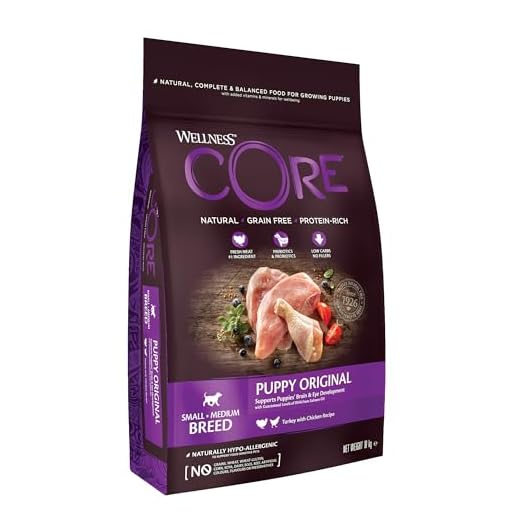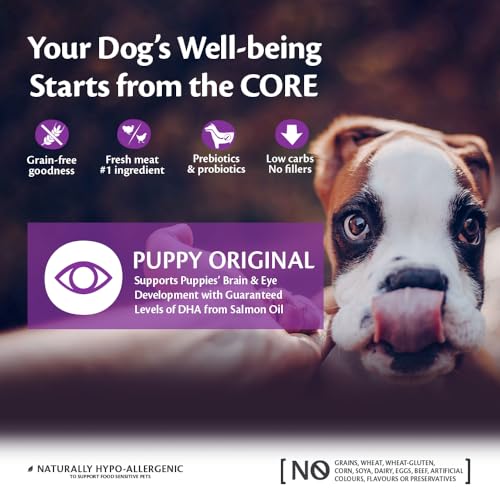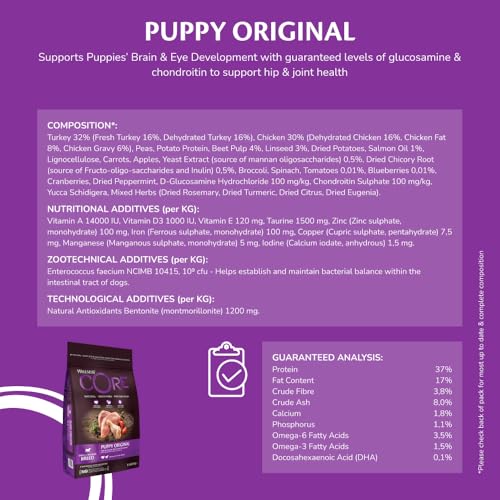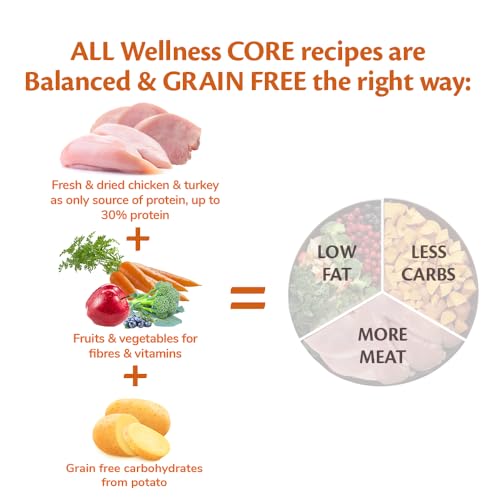




Raising a Jack Russell puppy is an exhilarating experience, but it also comes with a set of responsibilities, especially when it comes to their diet. These energetic and spirited little dogs require a well-balanced and nutritious diet to support their rapid growth and boundless energy. As a proud Jack Russell owner, I have navigated the maze of dog food options to ensure my puppy gets the best start in life.
In this article, I will share my insights and recommendations on the best dog food for Jack Russell puppies. I’ll delve into the specific nutritional needs of this breed and highlight the ingredients that promote optimal health and development. Whether you’re a new puppy parent or looking to refine your pet’s diet, my goal is to provide you with practical and detailed information to help you make informed choices.
Understanding the unique dietary requirements of Jack Russell puppies is crucial. They need a diet rich in high-quality proteins, healthy fats, and essential vitamins and minerals. Additionally, the food should be tailored to support their active lifestyle and prevent common health issues. I’ve explored various brands and formulations, considering both commercial options and home-prepared meals, to compile a comprehensive guide that prioritises the well-being of your furry friend.
Join me as we explore the best dog food options for Jack Russell puppies, ensuring they grow into strong, healthy, and happy adults. From analysing ingredient lists to considering the benefits of different feeding routines, this guide aims to equip you with all the knowledge you need to nourish your puppy effectively. Let’s embark on this journey to give our Jack Russells the best possible nutrition they deserve.
Understanding the Nutritional Needs of Jack Russell Puppies
As a devoted Jack Russell owner, I’ve learned that these energetic and spirited puppies require a well-balanced diet to support their rapid growth and high energy levels. Proper nutrition is vital during their early months to ensure they develop strong muscles, bones, and a robust immune system. Unlike adult dogs, Jack Russell puppies have unique dietary needs that must be met with precision.
One of the first things to consider is the high caloric demand of Jack Russell puppies. Due to their playful and active nature, they burn through calories quickly. Hence, their diet should be rich in high-quality proteins and fats. Proteins are the building blocks for muscle development, while fats provide a concentrated source of energy.
Key Nutritional Elements for Jack Russell Puppies
In addition to proteins and fats, it’s essential to ensure their diet includes a balanced mix of vitamins and minerals. Here are some key nutritional elements that should be part of their daily intake:
- Proteins: Essential for muscle development and repair. Look for dog food with high-quality animal proteins like chicken, beef, or fish as the primary ingredient.
- Fats: Provide the necessary energy and help with the absorption of fat-soluble vitamins. Omega-3 and Omega-6 fatty acids also contribute to a healthy coat and skin.
- Carbohydrates: While not the primary energy source, they are important for digestion and provide a steady energy release. Opt for whole grains and vegetables.
- Calcium and Phosphorus: Crucial for the development of strong bones and teeth. The correct ratio is vital to prevent skeletal problems.
- Vitamins and Minerals: A complete puppy food should contain a blend of vitamins A, C, D, E, and B-complex vitamins, as well as essential minerals like zinc and iron to support overall health and immune function.
It’s also important to feed Jack Russell puppies several small meals throughout the day rather than one or two large meals. This approach helps to maintain their energy levels and prevents hypoglycemia, a common issue in small breeds.
Ensuring your Jack Russell puppy receives a diet tailored to their specific needs will set the foundation for a healthy and active life. Always consult with your veterinarian to select the most appropriate food and feeding regimen for your puppy.
Key Ingredients to Look for in Puppy Food
When it comes to choosing the best food for your Jack Russell puppy, the quality of the ingredients is paramount. Ensuring your puppy receives the right nutrients during their formative months will set the foundation for a healthy, active life. I’ve found that understanding what goes into their food can make a significant difference in their growth and overall well-being.
Through my research and experience, I’ve identified several essential components that should be present in your puppy’s diet. These ingredients support not only their physical development but also their cognitive functions, ensuring they grow into well-rounded adults. Here’s a detailed look at what to prioritise in their food.
Essential Ingredients for Optimal Puppy Health
-
High-Quality Protein: Proteins are the building blocks of your puppy’s muscles and tissues. Look for sources like chicken, beef, or fish as the primary ingredient. These proteins are easily digestible and provide the essential amino acids necessary for growth.
-
Healthy Fats: Fats are crucial for energy and the development of a shiny coat and healthy skin. Ingredients such as chicken fat, fish oil, and flaxseed are excellent sources of omega-3 and omega-6 fatty acids, which support brain development and joint health.
-
Complex Carbohydrates: While proteins and fats are vital, carbohydrates provide the energy your playful puppy needs. Opt for whole grains like brown rice, oatmeal, or sweet potatoes. These ingredients offer sustained energy and are less likely to cause spikes in blood sugar levels.
-
Vitamins and Minerals: Essential vitamins such as A, D, E, and K, as well as minerals like calcium and phosphorus, are necessary for bone development and overall health. Ingredients like carrots, spinach, and blueberries are natural sources that provide these nutrients.
-
Probiotics and Prebiotics: For a healthy digestive system, look for foods that include probiotics and prebiotics. These support a balanced gut flora, which is critical for nutrient absorption and immune function. Ingredients like chicory root and dried fermentation products are beneficial.
By focusing on these key ingredients, you can ensure that your Jack Russell puppy receives a balanced and nutritious diet. This attention to detail will not only promote their immediate health but also contribute to their long-term vitality and happiness.
Grain-Free vs. Grain-Inclusive: What’s Best for Your Jack Russell?
When choosing the right food for your Jack Russell puppy, you might find yourself torn between grain-free and grain-inclusive options. As a dedicated pet owner, I’ve delved into the pros and cons of each to help ensure my little pup gets the best possible nutrition.
Understanding the benefits and potential drawbacks of both grain-free and grain-inclusive diets can guide you in making an informed decision. Let’s explore these two options to determine which might be better suited for your Jack Russell.
Grain-Free Dog Food
Grain-free diets have gained popularity in recent years, with proponents arguing that they are closer to a dog’s ancestral diet. These foods typically exclude grains like wheat, corn, and rice, replacing them with ingredients such as sweet potatoes, peas, and lentils.
Pros:
- Allergy Management: If your Jack Russell has grain allergies or sensitivities, a grain-free diet can help alleviate symptoms such as itchy skin or digestive issues.
- High Protein Content: These diets often contain higher levels of animal protein, which can support muscle development and energy levels in active pups.
Cons:
- Potential Health Concerns: Recent studies have suggested a link between grain-free diets and certain heart conditions in dogs, although the research is ongoing.
- Cost: Grain-free dog food can be more expensive than grain-inclusive options, potentially impacting your budget.
Grain-Inclusive Dog Food
Grain-inclusive diets incorporate grains like brown rice, barley, and oats. These foods can offer a balanced mix of nutrients that are beneficial for growing puppies.
Pros:
- Nutritional Balance: Whole grains provide essential vitamins, minerals, and fibre, contributing to a well-rounded diet.
- Cost-Effective: Typically, grain-inclusive foods are more affordable, making them a budget-friendly choice for many pet owners.
Cons:
- Allergies and Sensitivities: Some dogs may have allergies to specific grains, which can lead to discomfort and health issues if not properly managed.
- Lower Protein Content: These diets may have a slightly lower protein content compared to grain-free options, which might not be ideal for highly active puppies.
Ultimately, the choice between grain-free and grain-inclusive dog food depends on your Jack Russell’s specific needs. Observing your puppy’s reaction to their diet and consulting with your vet can help you make the best decision for their health and happiness.
Wet vs. Dry Dog Food: Pros and Cons for Jack Russell Puppies
When it comes to feeding my Jack Russell puppy, I often find myself torn between choosing wet or dry dog food. Both options have their unique advantages and potential drawbacks, and understanding these can help in making the best decision for my puppy’s health and well-being.
Jack Russell puppies are known for their high energy levels and active lifestyles. Providing them with the right nutrition is crucial for their growth and development. Here’s a closer look at the pros and cons of both wet and dry dog food for my little companion.
Benefits and Drawbacks of Wet Dog Food
- High Moisture Content: Wet dog food contains a significant amount of water, which helps keep my puppy hydrated, especially important during the hot months or if my puppy isn’t drinking enough water.
- Palatability: The rich aroma and taste of wet food are usually more appealing to Jack Russell puppies, making it easier for me to ensure they eat their meals without fuss.
- Easier to Digest: The softer texture of wet food can be gentler on my puppy’s developing teeth and digestive system, reducing the risk of digestive issues.
- Cons: Wet dog food can be more expensive and requires refrigeration once opened. Additionally, it tends to have a shorter shelf life compared to dry food, which might not be as convenient for long-term storage.
Benefits and Drawbacks of Dry Dog Food
- Dental Health: The crunchy texture of dry dog food helps in cleaning my puppy’s teeth, reducing plaque and tartar build-up, which is beneficial for their overall dental health.
- Convenience: Dry food is easy to store, has a longer shelf life, and doesn’t require refrigeration, making it a practical choice for busy pet owners like myself.
- Cost-Effective: Generally, dry dog food is more economical, allowing me to provide high-quality nutrition without breaking the bank.
- Cons: Dry food lacks the moisture content found in wet food, which means I need to ensure my puppy drinks plenty of water. It may also be less palatable for picky eaters and might be harder for very young puppies to chew.
Ultimately, the decision between wet and dry dog food for my Jack Russell puppy comes down to balancing convenience, cost, and my puppy’s specific nutritional needs and preferences. Some pet owners, including myself, find that a combination of both types can offer the best of both worlds, providing variety and comprehensive nutrition.
Recommended Brands for Jack Russell Puppy Food
Choosing the right food for a Jack Russell puppy is essential for their health and growth. These energetic and spirited dogs require a diet that supports their active lifestyle and rapid development. Over the years, I’ve researched and tried various brands to find the best options for my Jack Russell puppy, ensuring that each meal is both nutritious and enjoyable.
After a thorough exploration, I have narrowed down a few brands that consistently deliver high-quality ingredients and cater specifically to the needs of Jack Russell puppies. These brands focus on balanced nutrition, incorporating the right mix of proteins, fats, and essential nutrients to support healthy growth and development.
Brands That Stand Out
- Royal Canin – Known for their breed-specific formulas, Royal Canin offers a recipe tailored specifically for Jack Russell puppies. This brand ensures that your puppy gets the precise nutrition they need, including a balanced blend of proteins, fats, and fibres.
- Hill’s Science Plan – This brand is renowned for its scientifically backed recipes that cater to the specific needs of growing puppies. Their puppy formula includes high-quality proteins and DHA from fish oil, which supports brain and eye development.
- Orijen Puppy – If you prefer a more natural approach, Orijen provides a biologically appropriate diet with high protein content sourced from free-run chicken and turkey, wild-caught fish, and cage-free eggs. It’s a great choice for those who want to give their puppies a diet close to what they would eat in the wild.
- Acana Puppy & Junior – Acana offers another excellent choice with their focus on regional ingredients and whole-prey ratios. This formula includes a diverse variety of meats and fish, ensuring your puppy gets a nutrient-dense diet.
These brands not only meet the nutritional requirements of Jack Russell puppies but also provide them with the energy and health benefits needed for their playful and active nature. By choosing any of these recommended brands, you can ensure your puppy is on the right path to a healthy and happy life.
How to Transition Your Jack Russell Puppy to a New Food
Transitioning your Jack Russell puppy to a new food requires careful planning and patience to ensure a smooth adjustment. Puppies have sensitive digestive systems, and a sudden change can lead to stomach upset or refusal to eat. Following a structured transition process can help your puppy adapt without any issues.
It’s important to choose a high-quality food specifically formulated for puppies to meet their nutritional needs during this critical growth phase. Whether you’re switching due to dietary needs or simply upgrading to a better quality brand, the transition should be gradual and monitored closely.
Step-by-Step Guide to Transitioning Food
- Days 1-3: Mix 25% of the new food with 75% of the current food. Observe your puppy for any signs of digestive discomfort.
- Days 4-6: Increase the new food to 50%, while reducing the current food to 50%. Continue to monitor your puppy’s reaction.
- Days 7-9: Offer 75% of the new food and 25% of the current food. By this stage, your puppy should be more accustomed to the new diet.
- Day 10: You can now feed 100% of the new food. Keep an eye on your puppy for any adverse reactions and consult your vet if you have concerns.
During the transition period, it’s crucial to watch for any signs of distress or allergies, such as vomiting, diarrhoea, or excessive scratching. If you notice any of these symptoms, slow down the transition process or consult your veterinarian for advice.
Additionally, always provide fresh water for your puppy and maintain a consistent feeding schedule to help them adjust to their new diet. Gradual changes not only help in preventing digestive upset but also make it easier for your puppy to accept the new food.
By following these steps, you can ensure a smooth transition for your Jack Russell puppy, setting the foundation for a healthy and happy life.
Best Dog Food For Jack Russell Puppies
Features
| Part Number | 3182550821438 |
| Model | 3182550821438 |
| Is Adult Product | |
| Size | 7.5 kg (Pack of 1) |
| Language | Italian |
Features
| Model | NPSC45830 |
| Size | 10 kg (Pack of 1) |
Features
| Size | 500 g (Pack of 42) |
Features
| Part Number | 10773 |
| Model | 10773 |
| Size | 10kg |
| Language | French |
Features
| Size | 12 kg (Pack of 1) |
Features
| Part Number | BWECOMM40 |
| Model | BWECOMM40 |
| Release Date | 2018-12-23T00:00:01Z |
| Size | 300 g (Pack of 40) |
| Language | English |
| Price history for Barking Heads Mega Variety Pack Wet Food | |
|---|---|
|
Latest updates:
|
|
Features
| Part Number | 3182550402132 |
| Model | 02RCMEDJ15 |
| Color | Black |
| Is Adult Product | |
| Release Date | 2011-01-18T00:00:01Z |
| Size | 15 kg (Pack of 1) |
| Language | French |
| Price history for ROYAL CANIN Medium Puppy Food, 15kg | |
|---|---|
|
Latest updates:
|
|
Q&A:
What is the best type of food for Jack Russell puppies?
The best type of food for Jack Russell puppies is a high-quality puppy food specifically formulated for small breeds. Look for options that contain balanced nutrients essential for their growth and development.
Should I choose dry or wet food for my Jack Russell puppy?
Either option can be suitable, but many Jack Russell owners find that dry kibble helps maintain their puppy’s dental health. However, if your puppy prefers wet food or has dental issues, you can opt for high-quality wet food instead.
How often should I feed my Jack Russell puppy?
Jack Russell puppies typically need to be fed three to four times a day to support their rapid growth and energy levels. However, you should adjust the feeding frequency based on your puppy’s individual needs and consult with your veterinarian for specific recommendations.















































